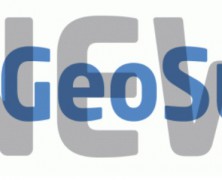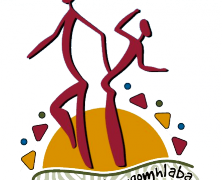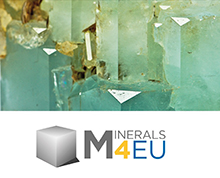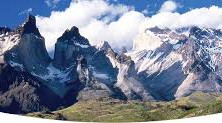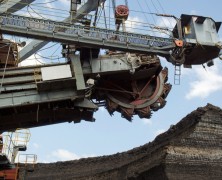The conference “Unconventional hydrocarbons (UHC) – The Polish experience in the European dimension”, organized by the Polish Geological Institute, focused on providing experts with insights and analysis about the Polish experience with Unconventional hydrocarbons and how this experience may help to provide valuable direction for the future of the Energy Union. Mr. Verbruggen, President of EuroGeoSurveys (The Geological Surveys of Europe) and Director of the Geological Survey of Ireland, was invited to be part of the High Level Panel of speakers at event. During its presentation, Mr. Verbruggen presented EuroGeoSurveys and its field of action, geosciences research, highlighting how EGS provides unbiased scientific advice to support EU policy makers and society at large. The estimation of shale gas resources in Europe still varies to a large degree since there are no production experiences and very limited exploration, leading to large uncertainties. This is the reason why the EU needs consistent pan-EU data sets and uniform estimation principles. A new EGS project “EUOGA”, in collaboration with the Join Research Centre (JRC) of the European Commission, led by GEUS and TNO, has the aim to mainly fill these “data gaps” by providing a comprehensive overview of current knowledge on Shale Gas potential areas in EU/EGS member countries. The project will develop a database for further collaboration and research. Mr. Brodzinski, Under-Secretary of State and Chief National Geologist of the Ministry of Environment of Poland, gave a talk about UHC in Poland. By producing UHC, viable alternative for imported energy carriers, Poland is improving the country’s energy security and fostering the economic growth, competitiveness and energy efficiency. According to scientific research, it has been demonstrated that UHC are considered as viable alternative for Poland because they are environment-friendly source of energy, potentially feasible, and enhance energy security....
Unconventional hydrocarbons (UHC) – The Polish experience in the European dimension
posted by EuroGeoSurveys
35th International Geological Congress: Geoethical perspectives on meeting the resource needs of future generations
posted by EuroGeoSurveys
...
EU minerals information freely available online – The results of the Minerals4EU Project at the final Conference
posted by EuroGeoSurveys
The final Conference of the Minerals4EU Project took place on the 25th of August in Brussels, at the Royal Belgian Institute of Natural Sciences. The results of the project were presented to stakeholders, including representatives of the minerals industry, governments and EU Institutions. Almost 100 participants took part in the event. Sustainability, interoperability and knowledge are the keywords of Minerals4EU. The Minerals4EU products form together a platform of distribution of information on minerals that benefits the whole of Europe now and in the future. The EU Minerals Knowledge Data Platform allows stakeholders to search, view and acquire standardized geo-resource and related data, freely accessible. The interoperability among countries is guaranteed as the platform is built in the framework of the INSPIRE Directive (Infrastructure for Spatial Information in Europe). For the first time, a European digital Yearbook for Raw Materials is available for consultation online. The Yearbook, which includes 65 commodities from 40 EU and non-EU countries providing a wide range of data never collected before, will be officially presented and launched on the 15th October 2015 in Brussels at the “Raw Materials Diplomacy Dialogue between the EU and the advanced mining countries” event. David Ovadia, Exploitation Manager of the project, illustrated the structure of the Permanent Body that will allow the sustainability of Minerals4EU. As a legal entity under Belgian law, the permanent body will count on a small bureau of skilled staff co-located at EuroGeoSurveys in Brussels, acting as access point to a broader network of members. The bureau will therefore assist the Network in providing data, expertise, etc. Such a structure will assure that the project results will not be lost, but will survive to serve European policy makers, investors, citizens, scientists and tackle the challenges of the minerals industry. Furthermore, the...
IUGS – RFG Workshop in Namibia motivates Policy Action
posted by EuroGeoSurveys
PRESS RELEASE In 2013, the International Union of Geological Sciences (IUGS) launched the Resourcing Future Generations (RFG; https://www.geolsoc.org.uk/~/media/shared/documents/RFG/White%20Paper%20pdf.pdf?la=en) initiative to bring world attention to the challenges of sustaining resource supplies. The RFG initiative includes a diverse group of geoscientists, environmental and social scientists, including economists, drawn from a range of institutions and EuroGeoSurveys with diverse private and public experience in exploration, mining, processing, environmental protection, and sustainable development. During its most recent workshop held in Namibia from the 25th to 30th of July, 2015, the group began by recognising that there are several global-scale challenges facing humanity that are interrelated: (i) climate change; (ii) sustainable development, and (iii) resource adequacy and diversity of supply. Attempts to address climate change and sustainable development necessarily involve resource adequacy, and yet has received minimal global policy consensus. The workshop aimed to develop an expert consensus document to raise the profile of this issue at the highest level of international decision-making. The experts group substantiated the following key premises to develop an action agenda: The 20th century was characterised by massive improvements in living standards for billions of people in the developed world. This improvement was underpinned by a dramatic increase in utilisation of water, energy and mineral resources. However, the mineral resource requirements of humankind need to be met without compromising the ability of future generations to meet their own needs. With projections of further population growth to about 9 billion people by 2050 the worldneeds adequate supplies of mineral raw materials to fulfill the aspirations of this growing population, and to meet targets of sustainable development. During 5 days of sharing research, the experts group focused the development of its policy motivation document on the following key areas requiring action: (i) supply and demand; (ii) the fact that mineral deposits are...
ON-LINE EUROPEAN MINING LEGISLATION TRAINING COURSE
posted by EuroGeoSurveys
This online training course is offered by Illustre Colegio Oficial de Geólogos and is addressed to Mining companies, geologists, mining engineers, mining managers, legislators and regulators and EU Commission officials as well as scholars interested in the mining legislation currently in force in Europe and the incredible variety of its defining factors. The course gives information on mining legislation covering all the 28 EU members, as well as the accessing countries, and some other European countries which are considered of interest for mining companies. Duration: The training course will have a duration of 200 h, including tutoring and evaluations. Dates: 14th September to 1st November 2015 Direction: Manuel Regueiro y González-Barros, EuroGeol, Honorary Professor of the Dpt of Crystallography & Mineralogy of the Faculty of Geology. University Complutense of Madrid. Total number of credits: approximately 200 For more detailed information and background of the initiative, please visit http://www.icog.es/cursos/index.php/on-line-european-mining-legislation-training-course/ or download the icog.es-ON-LINE EUROPEAN MINING LEGISLATION TRAINING COURSE (1)...

